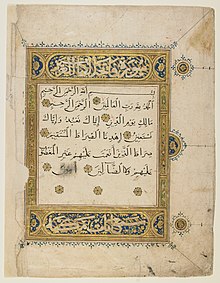Hello world
Abdulmalik's blog
just another blog with spicy info
Sunday 19 November 2017
Sunday 14 May 2017
Women handbag at tripleclick
Item Type:Handbags
Interior:Interior Compartment,Interior Zipper Pocket
Exterior:Silt Pocket
Lining Material:Polyester
Gender:Women
Closure Type:Zipper
Handbags Type:Shoulder Bags
Decoration:Tassel
Style:Vintage
Shape:Shell
Types of bags:Shoulder & Crossbody Bags
Pattern Type:Serpentine
Hardness:Soft
Number of Handles/Straps:Single...
Interior:Interior Compartment,Interior Zipper Pocket
Exterior:Silt Pocket
Lining Material:Polyester
Gender:Women
Closure Type:Zipper
Handbags Type:Shoulder Bags
Decoration:Tassel
Style:Vintage
Shape:Shell
Types of bags:Shoulder & Crossbody Bags
Pattern Type:Serpentine
Hardness:Soft
Number of Handles/Straps:Single...
New women handbag
Item Type:Handbags
Interior:Interior Compartment,Interior Zipper Pocket
Exterior:Silt Pocket
Lining Material:Polyester
Gender:Women
Closure Type:Zipper
Handbags Type:Shoulder Bags
Decoration:Tassel
Style:Vintage
Shape:Shell
Types of bags:Shoulder & Crossbody Bags
Pattern Type:Serpentine
Hardness:Soft
Number of Handles/Straps:Single
Main Material:PU
Interior:Interior Compartment,Interior Zipper Pocket
Exterior:Silt Pocket
Lining Material:Polyester
Gender:Women
Closure Type:Zipper
Handbags Type:Shoulder Bags
Decoration:Tassel
Style:Vintage
Shape:Shell
Types of bags:Shoulder & Crossbody Bags
Pattern Type:Serpentine
Hardness:Soft
Number of Handles/Straps:Single
Main Material:PU
20.5
USD
LimitedAvailability
USD
LimitedAvailability
Monday 13 March 2017
ETISALAT remote tweak(unlimited free browsing)
Good morning my readers.
It's been a while,without wasting your time I want to share a secret.
ETISALAT cheat.
Google search for the latest tweakware (I.e version 5.8)
When you have install the app,click on settings
Click on remote tweak to get the file for free browsing, you must have
At least 1mb to download the remote tweak,when done,it will will display
ETISALAT like we have in the picture above.
Go to home,click the drop bar you see below the servers and select remote tweak
Choose any of the free server and connect,you need nothing
BUT if you close your tweakware app there will be need to download the remote tweak
File again
Furthermore, you can EXPORT your tweak to your memory card and IMPORT it back
When you need it.
It's been a while,without wasting your time I want to share a secret.
ETISALAT cheat.
Google search for the latest tweakware (I.e version 5.8)
When you have install the app,click on settings
Click on remote tweak to get the file for free browsing, you must have
At least 1mb to download the remote tweak,when done,it will will display
ETISALAT like we have in the picture above.
Go to home,click the drop bar you see below the servers and select remote tweak
Choose any of the free server and connect,you need nothing
BUT if you close your tweakware app there will be need to download the remote tweak
File again
Furthermore, you can EXPORT your tweak to your memory card and IMPORT it back
When you need it.
This tweak is free and it's different from ETISALAT 0.0k tweak that has a limit
Of 60mb...I don't think this one has limit cause have used over 2gb in the early
Time I discover it.
Thanks...if you have any problem kindly drop it in the comment box, am willing to help
SHALOM!!!!
Saturday 5 December 2015
Shocking Dangers Of Consuming Catfish
In Nigeria, catfish is one of the most widely loved and enjoyed fish. It is consumed in various delicacies, especially at social gatherings.
Catfish
The fact that it is affordable when compared to other varieties of fish in the market makes it more popular. However, research has shown that consumption of catfish is not so healthy. While medics assert that fish is a better and healthier option than meat, it seems quite a lot of people didn’t wait to hear the other part of the medical advice that not all types of fish are good for the heart.
According to expert advice, the omega 6 fatty acids in catfish can increase your risk of getting blood clots, arthritis, inflammatory bowel disease and some cancers? In fact, nutritionists say that catfish is loaded with bad fat and high cholesterol that encourage clotting of the blood, a condition whereby blood flow is impeded. This may lead to cardiac arrest, thrombosis and, in some cases, heart attacks.
A cardiologist, Dr. Jane Anisulowo, who talked to The Punch recently said that farmed or home-grown catfish is the worst example in this regard, as it contains more fatty hormones than the ones harvested from natural water. “Fish is better than meat, no doubt. It digests easily and it contains proteins. However, catfish is not really a good option, especially the ones they sell these days, which are cultivated with hormonal feeds that are filled with steroids and other fattening chemicals just to make them profitable. These chemicals are cancerous in nature.
READ ALSO: What You Should Know About Red Meat
“Also, they contain so much oil that you can almost taste it. Fish, generally, contains oil, but catfish has oil in its skin. That is what makes it so oily and unhealthy. It also contains a lot of poly unsaturated fat that does not only make you fat but also settles in the blood stream. That is very dangerous because when blood fails to get to an organ, it fails and suffers paralysis.”
A study which was conducted by the National Institute of Health in 2012, using over 1000 species of the fish in different water shows that catfish contains a high amount of unfavourable omega-6 fat that causes inflammation in the body. Three-ounce portion of catfish contains the same amount of bad fats found in red meat. This is not to say that one should give up eating the fish as catfish contains some nutrients such as Omega3 fatty acids that are good for the body.
Anisulowo, however, advised: “If you can get the one from the river, which is rare in most cities, then you may eat it twice a month. But if the only one you can get is the one that is being reared by farmers, you don’t have to eat at all, or just eat it when it is partially smoked. In that way, some of the fats would have been lost in the process. Better still, there are some other species of fish that are oily but they contain good fats and are more nutritious.”
Instead of regular consumption of catfish, here are some other species that you can add to your diet:
Mackerel
It is popularly called Titus fish in Nigeria. The oily meat found on mackerel is its main health benefit. It lowers triglycerides. High levels of triglycerides in the body have been linked to heart disease and strokes. The most common causes of a high triglyceride level are obesity and poorly maintained diabetes, mainly stemming from an inactive lifestyle.
Tilapia
Tilapia is a high-quality fish. It has proteins and contains all the essential amino acids your body requires from food diet to help to build proteins. One portion of tilapia cooked using dry heat contains about 26 grammes of protein. It also helps in weight control.
from: NAIJ.COM
how to download and activate clean installation of window operating systems
visit
http://getintopc.com/softwares/operating-systems/
select the official OS you want to download.
then click set up on the iso you download, if product key is required visit http://www.eightforums.com/tutorials/2299-clean-install-windows-8-a.html
for suitable product key. you don't have any problem. TESTED, IT WORK FOR ME...
http://getintopc.com/softwares/operating-systems/
select the official OS you want to download.
then click set up on the iso you download, if product key is required visit http://www.eightforums.com/tutorials/2299-clean-install-windows-8-a.html
for suitable product key. you don't have any problem. TESTED, IT WORK FOR ME...
Al-Fatiha
From Wikipedia, the free encyclopedia
This article is about the Surah of the Quran. For the Muslim LGBT rights organization, see Al-Fatiha Foundation.
| الفاتحة Al-Fātiḥah The Opening | |
|---|---|
| Classification | Meccan |
| Position | Juzʼ 1 |
| Number of verses | 6 (7 counting tasmee') |
| Number of words | 29 |
| Number of letters | 139 |
| Quran |
|---|
 |
Text[show]
|
Content[show]
|
Related[show]
|
Sūrat al-Fātiḥah (Arabic: سُّورَةُ الفَاتِحَة) is the first chapter (Surah) of the Quran. Its seven verses (ayat) are a prayer for the guidance, lordship and mercy of the reciter's God.[1] This chapter has an essential role in Islamic prayer (Salāt). The primary literal meaning of the expression "al-Fātiḥah" is "The Opening," which could refer to this Surah being "the opening of the Book" (Fātiḥat al-kitāb), to its being the first Surah recited in each cycle (rakʿah) of prayer, or to the manner in which it serves as an opening for many functions in everyday Islamic life. Some Muslims interpret it as a reference to an implied ability of the Surah to open a person to faith in God.[2]
Contents
[hide]Names[edit]
The name al-Fātiḥah ("the Opening") is due to the subject-matter of the Surah. Fātiḥah is that which opens a subject or a book or any other thing. In other words, a sort of preface.[1]
It is also called, Umm Al-Kitab ("the Mother of the Book") and Umm Al-Quran ("the Mother of the Quran");[3][4] Sab'a al Mathani("Seven repeated [verses]", an appellation taken from verse 15:87 of the Quran);[4] Al-Hamd ("praise"), because a hadith narratesMuhammad as having said: "The prayer [al-Fātiḥah] is divided into two halves between Me and My servants. When the servant says, 'All praise is due to God', the Lord of existence, God says, 'My servant has praised Me'.";[5] Al-Shifa' ("the Cure"), because a hadith narrates Muhammad as having said: "The Opening of the Book is a cure for every poison.";[6][7][non-primary source needed], Al-Ruqyah("remedy" or "spiritual cure").,[4] and al-Asas, "The Foundation", referring to its serving as a foundation for the entire Quran [8]
Background[edit]
According to Abd Allah ibn Abbas and others, al-Fātiḥah is a Meccan sura; while according to others it is a Medinan sura. The former view is more widely accepted, although some believe that it was revealed in both Mekka and Medina.[9][10] In the Quran, the first revelations to Muhammad were only the first few verses (ayats) of Surahs Alaq, Muzzammil, Al-Muddathir, etc. Most narrators recorded that al-Fātiḥah was the first complete Surah revealed to Muhammad.[1]
Theme and subject matter[edit]
Al-Fātiḥah is often believed to be a synthesis of the Quran.[11] It in itself is a prayer at the very beginning of the Quran, which acts as a preface of the Quran and implies that the book is for a person who is a seeker of truth—a reader who is asking a deity who is the only one worthy of all praise (and is the creator, owner, sustainer of the worlds etc.) to guide him to a straight path.[1] It can be said to "encapsulate all of the metaphysical and eschatological realities of which human beings must remain conscious." [12]
Interpretations[edit]
There are differing interpretations for verses 6 and 7. The phrase "the Path journeyed by those upon whom You showered blessings" is usually seen as referring to Muslims. The phrase "those who made themselves liable to criminal cognizance/arrest" (more clearly translated as "those who have incurred Your wrath") is usually seen as referring to the Jewsand the phrase "those who are the neglectful wanderers" (more clearly translated as "those who have gone astray") is seen as referring to the Christians.[13] The Quran: An Encyclopedia, authored by 43 Muslim and non-Muslim academics says, "The Prophet interpreted those who incurred God’s wrath as the Jews and the misguided as the Christians".[14] Other commentators suggest that these verses do not refer to any particular religious community.[13]
Related ahadith[edit]
| This article relies too much on references to primary sources. Please improve this article by adding secondary or tertiary sources. (May 2015) |
In his hadith collection Musnad Ahmad ibn Hanbal, Ahmad ibn Hanbal recorded that Abu Sa`id bin Al-Mu`alla had said:
"I was praying when the Prophet called me, so I did not answer him until I finished the prayer. I then went to him and he said, What prevented you from coming?
I said, 'O Messenger of Allah! I was praying.'
He said, Didn't Allah say,
O you who believe! Answer Allah (by obeying Him) and (His) Messenger when he calls you to that which gives you life.
He then said,
"I will teach you the greatest Surah in the Qur'an before you leave the Masjid (Mosque)."
He held my hand and when he was about to leave the Masjid, I said, `O Messenger of Allah! You said: I will teach you the greatest Surah in the Qur'an.'
He said, Yes.
Al-Hamdu lillahi Rabbil-`Alamin,
It is the seven repeated (verses) and the Glorious Qur'an that I was given.— Ahmad ibn Hanbal, Musnad Ahmad ibn Hanbal[15]
One hadith narrates a story of a companion of Muhammad who recited al-Fātiḥah as a remedy for a tribal chief who was poisoned. According to the hadith, Muhammad later asked the companion, "How did you know that it is a Ruqyah [remedy]?"[4] Muhammad al-Bukhari recorded in his collection:
Narrated Abu Said Al-Khudri:
While we were on one of our journeys, we dismounted at a place where a slave girl came and said, "The chief of this tribe has been stung by a scorpion and our men are not present; is there anybody among you who can treat him (by reciting something)?" Then one of our men went along with her though we did not think that he knew any such treatment. But he treated the chief by reciting something, and the sick man recovered whereupon he gave him thirty sheep and gave us milk to drink (as a reward). When he returned, we asked our friend, "Did you know how to treat with the recitation of something?" He said, "No, but I treated him only with the recitation of the Mother of the Book [al-Fātiḥah]." We said, "Do not say anything (about it) till we reach or ask the Prophet. So when we reached Medina, we mentioned that to the Prophet (in order to know whether the sheep which we had taken were lawful to take or not). The Prophet said, "How did he come to know that it [al-Fātiḥah] could be used for treatment? Distribute your reward and assign for me one share thereof as well."— Muhammad al-Bukhari, Sahih al-Bukhari[16]
Similar versions are found in: Al-Bukhari: 007.071.645[17]—medicine; Al-Bukhari: 007.071.633[18]—medicine; Al-Bukhari: 007.071.632[19]—medicine
If anyone observes prayer in which he does not recite Umm al-Qur'an,[20] it is deficient [he said this three times] and not complete.
A similar story is found in Al-Bukhari: 001.012.723[22]—characteristics of prayer.
Muslim ibn al-Hajjaj recorded:
Ibn 'Abbas reported that while Gabriel was sitting with the Apostle (may peace be upon him) he heard a creaking sound above him. He lifted his head and said: This As a gate opened in heaven today which had never been opened before. Then when an angel descended through it, he said: This is an angel who came down to the earth who had-never come down before. He greeted and said: Rejoice in two lights given to you which have not been given to any prophet before you: Fatiha al-Kitab and the concluding verses of Surah al-Baqara. You will never recite a letter from them for which you will not be given (a reward).— Muslim ibn al-Hajjaj, Sahih Muslim[23]
See also[edit]
Notes and references[edit]
- ^ Jump up to:a b c d Maududi, Sayyid Abul Ala. Tafhim Al Quran.
- Jump up^ Joseph E. B. Lumbard "Commentary on Sūrat al-Fātiḥah," The Study Quran. ed. Seyyed Hossein Nasr, Caner Dagli, Maria Dakake, Joseph Lumbard, Muhammad Rustom (San Francisco: Harper One, 2015), p. 3.
- Jump up^ Mulla Sadra. Tafsir al-Quran al-Karim. pp. 1:163–164.
- ^ Jump up to:a b c d Ibn Kathir. Tafsir Ibn Kathir.
- Jump up^ Abu al-Qasim al-Khoei. Al-Bayan Fi Tafsir al-Quran. p. 446.
- Jump up^ Muhammad Baqir Majlisi. Bihar al-Anwar. pp. 89:238.
- Jump up^ Al-Hurr al-Aamili. Wasā'il al-Shīʿa. pp. 6:232.
- Jump up^ Joseph E. B. Lumbard, "Introduction to Sūrat al-Fātiḥah," The Study Quran. ed. Seyyed Hossein Nasr, Caner Dagli, Maria Dakake, Joseph Lumbard, Muhammad Rustom (San Francisco: Harper One, 2015), p. 3.
- Jump up^ Ahmad, Mirza Bahir Ud-Din (1988). The Quran with English Translation and Commentary. Islam International Publications Ltd. p. 1. ISBN 1-85372-045-3.
- Jump up^ English Translation and Commentary 5 Volumes
- Jump up^ Joseph E. B. Lumbard, "Introduction to "Sūrat al-Fātiḥah," The Study Quran, ed. Seyyed Hossein Nasr, Caner Dagli, Maria Dakake, Joseph E. B. Lumbard, and Muhammad Rustom (San Francisco: Harper One, 2015), p. 3.
Subscribe to:
Posts (Atom)





